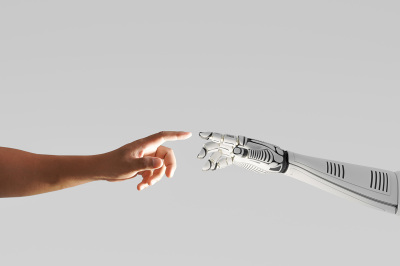
Last week, two signs of our times passed across my desk. First, a colleague drew my attention to the forthcoming volume A Queer Lectionary: (Im)proper Readings from the Margins—Year A. This is scarcely the first book to attempt to positively connect queer theory to the Christian life, but the task seems a rather hopeless one. Queer theory at base is the war against all categories. Couched in the rebarbative jargon that mere mortals can never penetrate, its form as much as its content is designed to confuse the reader and to reveal the apparently natural or obvious as being subversive or manipulative.
Connecting it to Christianity, particularly to the liturgically formed Christian life, is therefore strange. Queer theory challenges any and all established notions of what it means to be human, while Christianity is a religion of stable categories, with men and women made in God’s image being one of the most basic. Lectionaries and liturgies represent the formative doxological life of the Christian Church. They too are therefore predicated on the idea of stable categories and intended to shape those who use them into particular kinds of people.
One may choose to reject those categories. One may decry the orthodox vision of the Christian life as being a function of heteronormative power — or whatever the enemy du jour happens to be. In a country with freedom of religion, one may do so with impunity. But one cannot reject those categories without also rejecting the religion that they articulate. Queer Christianity, rather like atheistic theism, is a contradiction in terms. It is about desecration, not consecration. The language of queer piety cannot hide that simple fact.
A queer lectionary for a dying, irrelevant Church is no threat to Western civilization. And in the wider world, queer theory may well have had its day. One of the perennial truths of Christian existence is that, by the time the liberal churches take hold of the latest progressive idea, it is already out of date. There is also the so-called “vibe shift” on such things as the transgender issue that the advent of the second Trump administration arguably represents. Moves on women’s sports and DEI all point in that direction. And yet the trans issue does not depend upon queer theory. It ultimately rests upon the idea that embodied human nature can be overcome through the application of technology. And that threat is alive and well and likely to thrive in the coming years.
Second, on the same day that my colleague showed me the queer lectionary, a student alerted me to the claims that a genetic tech company had brought the dire wolf back from extinction. On one level, the gene editing involved is hardly headline news. What grabbed the public imagination was the Jurassic Park connotations. But the significance of this venture lies not so much in resurrecting extinct species, but in the godlike power it grants human beings. The question of where its limits lie is of urgent importance, made complicated by the fact that it may well deliver some great social goods, such as the ability to develop and improve restorative medical procedures. But make no mistake, it raises in a very practical way the same kind of issue that lies at the heart of queer theory: What does it mean to be human, if it means anything at all?
This is where the role of the so-called Tech Bros in the current political climate is very disturbing. Yes, the transgender lobby was — and remains — an obvious danger. The way it has been used to destroy women’s private spaces and undermine their safety should be looked upon by future generations as monstrous. The way it has been leveraged to weaken parental rights is despicable. It is a peculiarly pernicious ideology. Yet it is not simply connected to the LGBT coalition.
Indeed, that coalition has always been one predicated on a common foe — white male heteronormativity — rather than a positive anthropology. At a deeper level, it is part of the transhumanist movement, one that sees human limitations as challenges to overcome rather than boundaries to accept. And to the extent that the Tech Bros with their penchant for eugenics and technological manipulation of humanity have the ear of those in power, the question of what it means to be human will become ever more difficult to answer in practical terms. Elon Musk is right on the trans issue; but it is not clear whether his opposition is motivated by principled philosophical reasons or the tragic circumstances of his own family.
The abolition of man comes in many forms. The trans movement is one of the crudest and most obvious. But the potential chaos presented by what is happening in the technological sphere is just as significant. It is very possible that the Tech Bros will dismantle human nature in a more comprehensive manner than queer theorists could ever have dreamed of as they churned out their unreadable books and clogged the air of their seminar rooms with verbal fog.
Maybe the current administration will be able to end the battle over what it means to be a woman. There is real hope of that. But whether it will do the same with the underlying war over what it means to be human remains to be seen. Given its allies, I am not hopeful.
Originally published at First Things.
Carl R. Trueman is a professor of biblical and religious studies at Grove City College. He is an esteemed church historian and previously served as the William E. Simon Fellow in Religion and Public Life at Princeton University. Trueman has authored or edited more than a dozen books, including The Rise and Triumpth of the Modern Self, The Creedal Imperative, Luther on the Christian Life, and Histories and Fallacies.
















